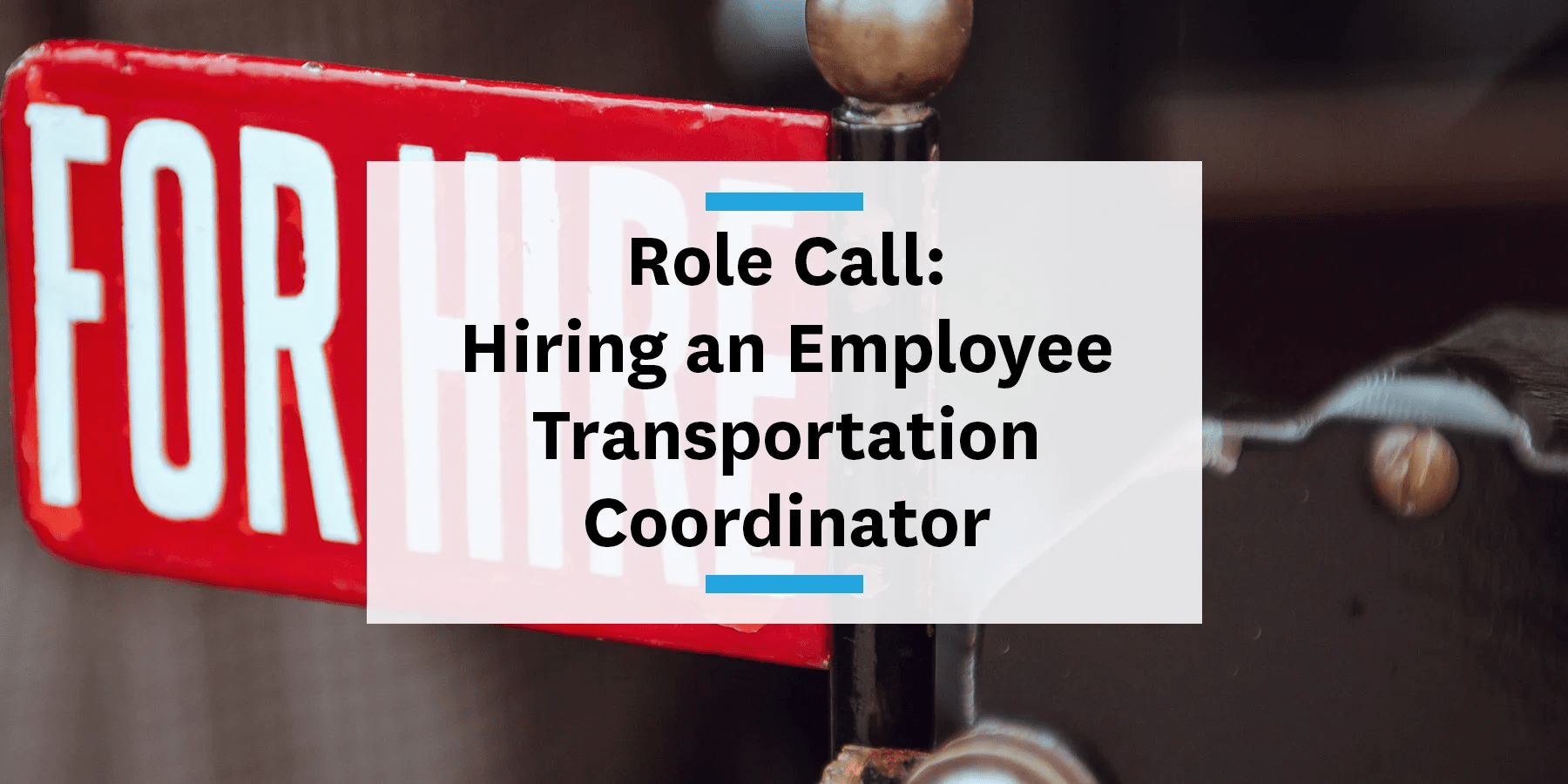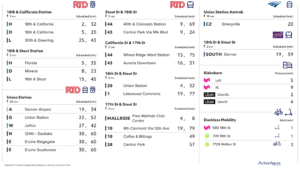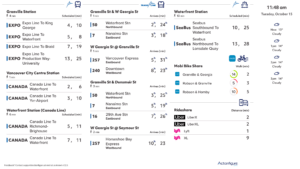With the rise of transportation demand management requirements cities are passing down, employers need to take more and more measures to lower their drive-alone rate. Most cities put the burden on employers to offer better commuter benefits, continuously educate employees about what’s being offered, and actively updating TDM plans to fit requirements. To do all of this, companies may want to (or have to) appoint someone as an Employee Transportation Coordinator (ETC). This role may change depending on where your company is located, but the role and responsibilities tend to be similar.

What’s an ETC?
Let’s get started with a quick run-through of the basic responsibilities of an ETC. Depending on the scope of the position, you can appoint a current employee to fulfill the duties or higher some new, with their sole focus on the position. Whichever hiring route you go with, the duties usually include creating and implementing a company’s TDM program, helping employees enroll in commuter benefits, and acting as a liaison between your company and the city.
Required commuting
Seattle is a pioneering city when it comes to TDM programs and reducing drive-alone commutes. Its Commute Trip Reduction law requires employers with 100 or more employees to follow several guidelines. One of those guidelines is to appoint an ETC.
The roles and responsibilities include:
- Developing and reporting on your company’s TDM program
- Implementing new elements of your company’s TDM program
- Distributing information to employees at least twice per year
- Administering an employee survey to assess the impact of TDM efforts every two years
- Acting as the liaison between your company and the city
San Francisco is another leading city when it comes to fighting drive-alone commute rates. Although San Francisco’s TDM requirements fall largely on developers, employers in the Bay Area with 50 or more employees are subject to the Bay Area Air Quality Management District’s Commuter Benefits Program. As part of these requirements, qualifying companies must appoint a Commuter Benefits Coordinator.
This person is responsible for completing the initial registration form, notifying employees of the benefits offered, and completing the annual registration update. While those tasks are required, going the extra mile by walking employees through the enrollment process or adding more benefits to accommodate new forms of mobility will make commuter benefit programs even more successful.
On the other side of the country, in Cambridge, Massachusetts, requires a similar role. Although this isn’t as heavily enforced as in Seattle or San Francisco, companies are encouraged to appoint someone as an ETC. That employee needs to submit this form to the city citing their duties, expected hours devoted to the role, and their contact information.
When is the time to appoint someone?
When your company grows large enough, it may be too much of a burden for one person to handle all commuter benefits, TDM initiatives, and reporting (if needed) on their own, especially if that isn’t their full-time job. Having a dedicated individual or team to handle these tasks may be the next step – but how do you know if your company is ready?
100+ employees
You can certainly appoint or hire an ETC before your company reaches 100 employees, but that’s the point at which Seattle requires companies to have one. When companies reach a triple-digit employee count, there are a lot of commutes to consider, which can require a lot of time.
In addition to the amount of commutes, the number of commuting methods changes. If a large number of employees bike or walk to work, the ETC may want to look into installing a shower at the office – especially for the summer months. Sometimes taking an Uber or Lyft to work makes the most sense, and setting up and maintaining a corporate account can take a good chunk of time. This the perfect opportunity to have one person be the admin on the account to make any changes needed.
Here’s a sure-fire sign you need someone handling this: if your company gets to the point where you need a shuttle. It’s one thing to offer benefits like this, but in order to get the most bang for your buck, you’ll want to have it be someone’s sole focus. Otherwise, you’ll have a shuttle running every day with a small number of people on it, and that’s not helping anyone! An employee transportation coordinator can dedicate time to marketing benefits to employees, which means more people will take advantage of what you’re offering.
Large remote workforce
Although a remote workforce means people aren’t coming to the main office everyday, those employees still need to get around. If they’re working out of a coworking space or satellite office, you should be offering assistance and support. Knowing the rules and restrictions of other cities can take time, and evolving mobility options means companies need to stay up to date on what’s available and what’s required.
For example, companies that have 20 or more employees nationwide with at least one employee working in a San Francisco-based office are required to offer that employee(s) commuter benefits. Even if your company is based in New York, you’ll need someone who has time to familiarize themselves with the BART.
Growing your company
Moving or adding office space is a crucial time for a company. It means more work, which means more employees, which means adding more commutes. But growing in space and workforce doesn’t always mean more parking. When companies plan to grow or move offices, parking availability isn’t always a priority, and usually gets put off until the last minute.
When talks begin about moving to a new location or taking up more space in your current location, that’s the perfect time to bring on an ETC. If you’re moving, you’ll need someone to assist with all the new commutes. They’ll also be able to implement or look for TDM features at your new space. This means finding a building with showers for cyclists, looking for secure bike parking, considering the proximity to the closest metro or bus stop, among much more.
When Reebok moved their headquarters from the suburbs to downtown, their parking spaces went from around 700 to less than 200. That meant a major focus was getting people on board with losing their cars and hopping on the train. To solve this issue, Reebok had a team dedicated to the office move to make sure all their bases were covered.
Other titles
While one person can take on this role and responsibilities, the title of the position may change from employer to employer. Some position names can include:
- Employee Transportation Coordinator
- Commuter Benefits Coordinator
- HR Professional – Focus on employee benefits
- Transportation Demand Management Coordinator
- Transportation Planner
- TDM Program Development Specialist
- Transportation Demand Management Specialist
- Transportation Communications Specialist
- Commuter Outreach Specialist




